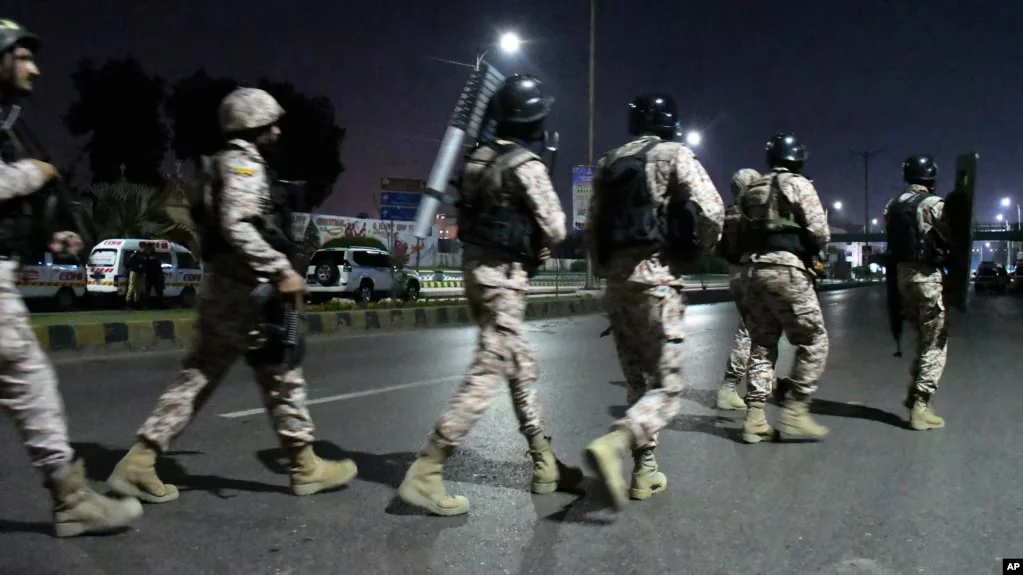Officials say 3 attackers also dead as police and paramilitary forces cleared building in gun battle
Three members of the security forces and one civilian were killed in the Pakistani Taliban attack. The attack targeted the Police HQ in the southern Pakistani city.
Pakistani Taliban fighters stormed a police compound in the southern Pakistani city of Karachi, killing at least four people.
On Friday, gunfire and explosions erupted outside the premises, which houses several police buildings and officer residences.
Government officials and Ghulam Nabi Memon, the police chief for Sindh province, reported that the Taliban attacked the Police HQ. They confirmed that the attack killed three members of the security forces and a civilian. They also confirmed that several other security force members were wounded.
Officials added that the attack resulted in the deaths of two suicide bombers. They noted that at least one of the bombers blew himself up after entering the police building.
Tehreek-e-Taliban Pakistan (TTP), also known as the Pakistani Taliban, claimed responsibility for the attack.
Murtaza Wahab, a government adviser, confirmed that police and paramilitary forces in a joint operation had cleared the police building within three hours of the attack late Friday.
“I confirm that the operation against the terrorists is over,” said Wahab.
President Arif Alvi condemned the assault in Pakistan’s chief commercial city and Prime Minister Shahbaz Sharif paid tributes to security forces for the successful operation.
SEE ALSO: https://southasiatimes.org/pakistan-embassy-attack-kabul/
When the attack began, a series of smaller blasts occurred, followed by a huge explosion inside the station.
Commandos from the elite police unit, troops from paramilitary rangers and army snipers took part in the operation to hunt down the attackers that lasted for more than three hours
Pakistan has witnessed a surge in attacks by armed groups since November when the Pakistani Taliban unilaterally ended a months-long ceasefire with the government.
Weeks after a suicide bomber disguised as a policeman killed 101 people at a mosque in the northwestern city of Peshawar, the attackers carried out the assault on Karachi’s police headquarters. Authorities blamed the TTP for orchestrating the bombing.
Original Source: Al Jazeera






![Ukrainian and Russian flags with soldier silhouettes representing ongoing conflict. [Image via Atlantic Council].](https://southasiatimes.org/wp-content/uploads/2026/02/2022-02-09T000000Z_1319661209_MT1NURPHO000HXCNME_RTRMADP_3_UKRAINE-CONFLICT-STOCK-PICTURES-scaled-e1661353077377.jpg)